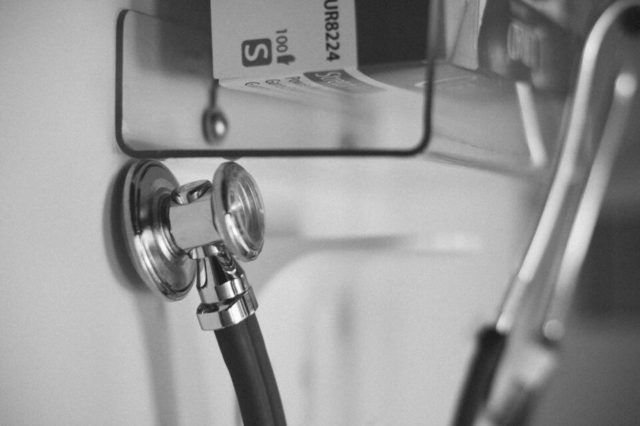“The problem is that doctors resign or get transferred but they aren’t replaced as appointments are not made,” a member of the public pointed out.”
THE SHORTAGE of doctors at the Robert Mangaliso Sobukwe Hospital in Kimberley has reached critical levels, hitting especially the Emergency Department, where there is often only one doctor on duty during a shift.
It was rumoured yesterday that the hospital will only be treating emergency, maternity and referred patients from today due to the current situation.
Emergency cases reportedly have to wait for extended periods of time before receiving medical attention because of the shortage.
While all sections of the hospital are said to be affected by the shortage, the Emergency Department is particularly hard-hit, often working with less than the minimum number of doctors available to provide care.
“The problem is that doctors resign or get transferred but they aren’t replaced as appointments are not made,” a member of the public pointed out. “This is partially due to administrative issues, as well as a shortage of funds.”
Meanwhile, it has also been reported that not a single lift at the hospital is working.
According to information provided by the Health Professions Council of South Africa (HPCSA), the total number of doctors registered in the Northern Cape are 121 working in the public sector and 540 in the private sector.
Health Minister Dr Zweli Mkhize has attributed the shortage of doctors in the country to the fact that the demand for health services in South Africa is increasing and funds to address the change are limited mainly due to the continuous rise of immigration and the increasing burden of disease.
Mkhize made the remarks in response to a parliamentary question from Freedom Front Plus MP Phillipus van Staden, who asked him what the reasons were for the shortage of doctors and nurses in South African state hospitals.
In his response, Mkhize said: “The primary reasons why the Republic (of South Africa) has a shortage of doctors and nurses is the fact that the public health sector budget has not been increasing in real terms for the past 10 years, impacting on the number of staff that can be appointed.
“Furthermore, the demand for health services in the country is increasing while there is no additional funding to address the change, which results primarily from immigration and the increasing burden of disease.
“The shortage of health professionals is a global phenomenon and is more pronounced in low- and middle-income countries as health workers are more likely to migrate to upper-middle-income countries in search of better living and working conditions.”
The DA in the Northern Cape has also expressed its concern regarding what it has termed the “severe shortage of nurses and doctors in the Province”.
According to the party, appointments are not being made at RMS Hospital and across the Province. The party has put the shortage of professional nurses in the Province at 1 556.
“Our sick and most vulnerable people are ultimately being denied basic health care or being exposed to adverse events due to a dire lack of capacity at hospitals and clinics across the Province,” the party said in a statement.
“Kimberley Hospital has for a long time already been implementing theatre cuts as a result of a shortage of nursing staff at the facility. This in turn causes patient backlogs to pile up even more, subsequently also delaying medical care for seriously ill patients.”
It added that a number of nurses and doctors have applied for positions here but their appointments never seem to be processed.
In a media report at the end of last year, it was stated that the Province’s public health facilities were unable to cope with multitudes of patients at overcrowded institutions. Besides a shortage of staff, it was reported that there is also a shortage of ambulances.
At the time, the vacancy rate for professionals – which includes doctors, nurses, pharmacists and physiotherapists – was estimated at between 70% and 75% in the Province, with even the new, state-of-the-art hospitals in Upington and De Aar running on what some called “skeleton” staff.
“The Health Department is believed to have no money to pay higher salaries to attract doctors and nurses from other parts of the country,” the report stated.
“The Mangaliso Robert Sobukwe Hospital in Kimberley, a referral facility, is unable to cope with the demand for specialist services and has to make transfers for operations and chronic cases to Bloemfontein. An official described the shortage of medical staff as ‘historical’ due to the fact that vacancies remained unfilled for a number of years. He said many posts had acting staff for between three and four years without permanent appointments, mainly due to a lack of funds and unavailability of professionals to come and work in the Province. Some of those acting had refused to carry on in those posts because the provincial Health Department was not paying them the acting allowances. They were also overworked because of the shortage of staff.”
Northern Cape Department of Health spokesperson Lebogang Majaha said in response that the MEC, Mase Manopole, had “rededicated her efforts towards addressing the staffing challenges in health care facilities across the Province”.
He added that the MEC had further committed to meet with organised labour by the end of this month to share a process plan in advancing this course.
“A joint media statement will be issued following the scheduled meeting with unions to communicate all decisions,” Majaha said.








